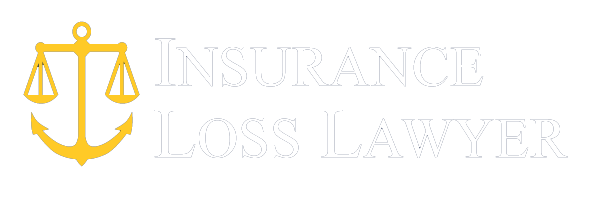What is an Examination Under Oath and do I have to submit to one – Yes.
Most insurance policies require an insured to submit to an Examination Under Oath as part of the insurer’s investigation prior to making a determination of coverage. A sample policy provision reads: “As often as we reasonably require: (3) Submit to an examination under oath while not in the presence of any other insured, and sign the same.”
An Examination Under Oath is a procedure wherein the insured is asked a number of questions by the insurer’s attorney, under oath, regarding the subject claim. The Florida Rules of Civil Procedure do not apply to Examinations Under Oath. Because an Examination Under Oath is conducted by an attorney for the insurer and involves sworn testimony regarding the insured’s claim, I recommend that all insureds have an attorney present. The insured’s attorney will be able to monitor the propriety and scope insurer’s conduct and questions in order to protect the insured’s interest in the claim.
As an Examination Under Oath is a sworn statement which can be used by the insurer in evaluating your claim, and in a future court proceeding, it is imperative that an insured answer all questions truthfully. An insured should refrain from speculation or exaggeration in any way. If you do not know the answer to a question it is acceptable to simply say “I don’t know” or “I don’t recall.” Additionally, an insured should only speak if there is a question pending and only address that question. Do not volunteer additional information, information that is not pertinent to your claim or provide detailed or lengthy explanations. Even though it may seem like you are being cooperative, this often provides the insurer with additional information on which to ask you questions and delve deeper into your claim.
Remember, it is the insurer’s goal to not have to pay your claim! The more information you volunteer the more ammunition the insurer has in its investigation and preparation of a potential defense against paying your claim. Further, an insured should defer to opinions rendered by experts and should defer to the authors of documents. Do not speculate as to an expert’s opinion or try to interpret the meaning or intent behind the content of a document that was not authored by you.
How long is an Examination Under Oath?
An Examination Under Oath can last as little as one (1) hour and as long as eight (8) hours. The duration of the Examination Under Oath is often unknown at the outset and depends on a number of factors. Some factors include who the attorney for the insurer is, how complicated your claim is, how much you are claiming in insurance benefits, how old the claim is, how many claims you have previously filed…etc.
While most Examinations Under Oath do not last the entire day, the insured should be prepared to be available for a full day as the insurer has the right to use the entire work day to conduct its Examination Under Oath. Failure to sit for an Examination Under Oath for a reasonable period of time may provide the insurer with grounds to deny your claim, so an insured should plan ahead and always be available for a full day.
What should I do to Prepare for an Examination Under Oath?
First, the policyholder should review all documents related to the claim and loss or any requested documents and create a “mental” timeline for the claim. You should not actually write out a timeline or create notes or documents as those could be discoverable by the insurer. All insureds should know the basic facts and documents related to a claim and should be able to answer the following questions that are almost always asked including: When did you become aware of damage? What was the property’s condition prior to the loss? What steps were taken immediately to mitigate the damage? When was the insurance company called or notified? Were any statements made by the insured to the insurer? (If so, consistency is a must in the EUO process.) What repairs were made? Who made the repairs? How much did they cost?
If an estimate has been submitted by a public adjuster or other professional, explain it is not your estimate or evaluation, but that of the professional or expert hired as this is not what you do. While an insured need not know the precise dates or amounts claimed for specific damages, an insured should be familiar with the events and ongoings of the claim, who has been involved, what actions have been taken since the loss and possess a working knowledge of their claim. It is important to note that EUOs are not memory tests. If a policyholder brings information and refers to it at an EUO, they can. One caveat: if notes are used, the defense attorney will ask for a copy and possibly attach the notes to the EUO as an exhibit.
Will I need to provide documents?
The insurer will often require the insured to produce documents prior to an Examination Under Oath. The insurer will often send a schedule requesting specific documents or documents that relate to a specific area of inquiry regarding your claim. An insured should perform due diligence in attempting to locate and produce as many documents that are responsive to the insurer’s requests as possible. Copies of all responsive documents should be forwarded to the insured’s attorney well in advance of the Examination Under Oath so that the insured’s attorney has an ample opportunity to review the documents prior to producing any documents to the insurer.
An insured is not required to go out and search for documents. An insured is only required to produce responsive documents that are in their immediate possession. For example, an insured is not required to call their bank, hospital, doctor, mortgage company, etc. in order to obtain documents that are responsive to the insurer’s requests. If you do not have the requested documents in your possession then it is acceptable to respond to the insurer’s requests in that manner. That being said, the more documents an insured can produce the more the insurer will view you the insured as being cooperative and often eases the investigative process for the insurer as well as the insured. Moreover, if a document or type of document will be very helpful i.e. an invoice for repair work, it may be a good idea to procure that document so it can be provided.
Do I need to answer all of the questions during an Examination Under Oath?
There are often issues as to which questions an insured must answer and which question, or type of questions, an insured can refuse to answer. The general rule is that an insured must answer all questions relating to the subject claim and an insured should attempt to answer all reasonable inquiries posed by the insurer. If a policyholder refuses to answer simple questions at EUO, defense counsel immediately suspect fraud, thinking, “Why else would someone refuse to answer questions unless they were hiding something?”
Typically an insured does not want to answer questions that are too personal. Often the subject of personal finances is one where policyholders raise a skeptical eye. That is, “What do my finances have to do with my insurance claim?” Well, the insurer has the right to delve into areas during the examination that may expose fraud. In the Eleventh Circuit Court of Appeals decision of Halcome vs. Cincinnati Ins. Co., 778 F.2d 606 (11th Cir. 1985), the insured made a claim for jewelry theft, but refused to answer questions about their income. The court declared that this refusal was a breach of the policy conditions and upheld the insurer’s denial of the claim.
The common thread seemingly running through these decisions is that the policyholder may not refuse to answer questions pertaining to the actual loss itself or circumstances surrounding that loss. Legally speaking, this is referred to as materiality. If the question is material to the investigation, i.e. pertaining directly to the loss or surrounding circumstances, then the policyholder must answer the question or violate the policy provisions. “We are unable to perceive that the questions proposed had any legitimate bearing upon the inquiry, what was the actual loss sustained in consequence of the fire.” Further reasoning that there was no evidence that the insured refused to answer any material questions about the loss, the court ruled that the insured’s refusal to answer the questions concerning other claims was not a breach of the policy’s conditions.


2550 South Bayshore Drive
Suite #211
Miami, FL 33133
Tel: 855-456-0445
Fax: 305-967-8182
Info@NeblettLaw.com

Just write down some details and our customer success heroes will get back to you in a jiffy!